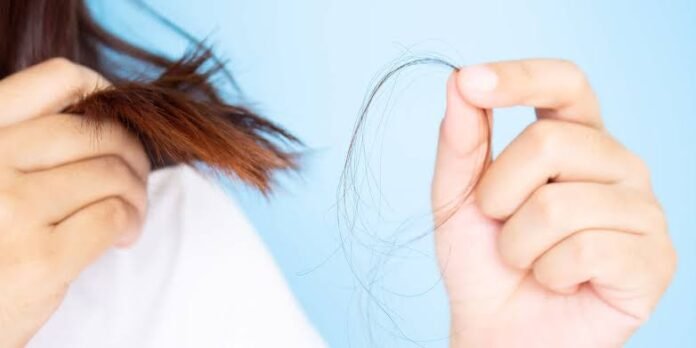Last Updated on March 12, 2024 by admin
Our body’s hormonal balance plays a significant role in our overall health, and our hair is no exception. Hormones are chemical messengers that travel throughout the body coordinating complex processes like growth, metabolism, and fertility. They can influence the function of the immune system, and even alter behavior. So, it comes as no surprise that they also impact the health and vitality of our hair.
Different hormones have diverse effects on hair growth and hair loss. For instance, Estrogen, the female hormone, is known to promote hair growth by extending the growth phase of the hair cycle. On the other hand, androgens, which while present in both genders are usually higher in males, can lead to hair thinning and loss by shrinking hair follicles.
Fluctuations in hormonal levels, such as those we experience during pregnancy, menstruation, and menopause, or due to conditions like Polycystic Ovary Syndrome (PCOS), can create significant changes in hair health and appearance.
Recognizing the impact of hormonal changes can help you better manage hair-related concerns. Regular scalp massages, ensuring a healthy diet, and maintaining a stress-free lifestyle can help to a certain extent. Moreover, consulting a healthcare professional or a trichologist can provide you with personalized advice based on your specific hormonal and hair health needs. It’s important to remember that the state of your hair is a reflection of your overall health and that maintaining a balanced hormonal state is key to promoting healthy hair.
Hair Health and Menopause: Understanding the Hormonal Shifts
Menopause, a natural biological process, signifies the end of a woman’s reproductive years, typically occurring in their late 40s or early 50s. This period is characterized by significant hormonal changes, particularly a decrease in the levels of estrogen and progesterone, two hormones that are critical for hair health.
As estrogen levels decline during menopause, its protective effects on hair diminish. The reduced estrogen levels mean hair spends less time in the growth phase and more in the rest phase, which can lead to noticeable hair thinning or even hair loss. Similarly, the decline in progesterone, another hormone known to aid in hair growth and thickness, can exacerbate this situation further.
Moreover, while the levels of these female hormones drop, the relative proportion of androgens (male hormones) increases. This shift can cause hair follicles to shrink, leading to hair thinning or loss, particularly in the crown and frontal scalp areas. This condition, known as Female Pattern Hair Loss (FPHL), is common among post-menopausal women.
However, it’s crucial to understand that these changes are a natural part of aging and do not indicate any severe health problems. There are various ways to manage these hair-related changes during menopause. These include maintaining a balanced diet rich in essential vitamins and minerals, avoiding heat and chemical styling, and using volumizing products to combat thinning hair. Additionally, specific treatments, as recommended by a healthcare professional or trichologist, can help manage hormonal hair loss effectively. Remember, every woman experiences menopause differently, and it’s essential to find solutions that work for your specific needs and concerns.
In conclusion, hormones play a pivotal role in our hair health, with fluctuations having the potential to trigger significant changes in hair growth, volume, and texture. While hormonal shifts, such as those experienced during menopause, can be challenging, it’s crucial to remember that they are a natural part of life’s processes. You can effectively manage hair-related concerns triggered by these changes by maintaining a healthy lifestyle, eating a balanced diet, and seeking personalized advice from healthcare professionals or trichologists. Embrace these changes as an integral part of your journey, and remember, your hair’s health is a reflection of your overall well-being. Taking care of your body and maintaining a balanced hormonal state will, in turn, ensure the vitality of your hair.
Apart from that, if you are interested to know about Outline Of Hair Health then visit our Health category.
